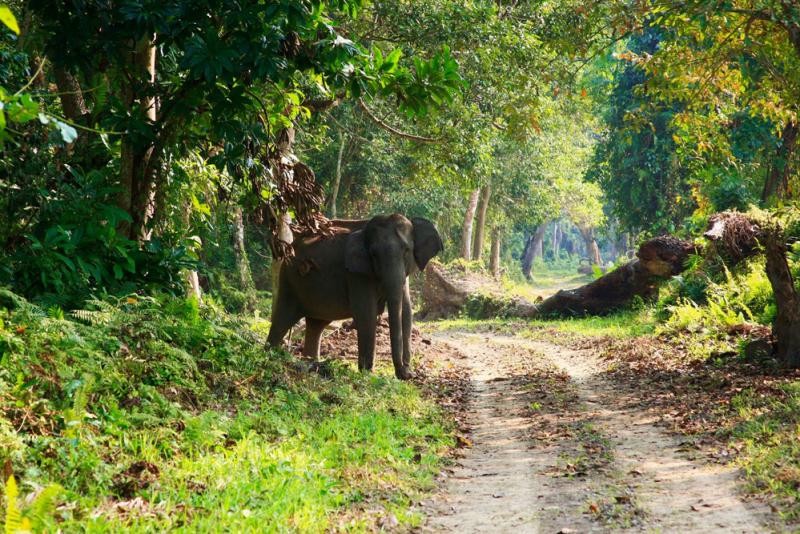Government is ensuring the participation of Nigerians in wildlife enforcement, while limiting conservation to specific areas that does not conflict with the interests of the local communities.

This is aimed at addressing challenges relating to the fact that conservation areas include the traditional hunting grounds of the communities living around such areas, so as not to deny them their hunting rights.
Furthermore, all revenues earned from hunting licenses and proceeds from the sale of wildlife trophies are being ploughed back into conservation activities.
These measures are said to be part of the actions being undertaken by the authorities to achieve the Aichi Biodiversity Targets 2020.
Developed at the Conference of Parties to the Convention on Biological Diversity (CBD) in Nagoya, Japan in 2010, the Aichi Biodiversity Targets are intended to help countries measure their progress in preventing the loss of biodiversity and improving benefits from biodiversity to society.
According to the CBD, Nigeria is also striving to meet the Targets by ensuring that, while issuing CITES (the Convention on International Trade in Endangered Species of Wild Fauna and Flora) licenses, the export of fauna and flora does not impact on the population of the species concerned.
“There have been cases of breaches of CITES procedures by individuals however, unfortunately, no capacity exists for detecting these breaches.”
It was gathered that invasive alien species that threaten biodiversity and their habitats by displacing original species, spreading diseases, competing for resources, parasitism, have been identified; but that Nigeria has ongoing invasive control projects and programmes in place and has achieved some level of success in implementing actions to address these threats.
Regarding support mechanisms for national implementation of the CBD, the country is said to have developed various strategies and programmes for sustainable management of biodiversity, thereby promoting adequate levels of funding, and integrated human development programmes.
Achievement of some of these strategies has reportedly been realised through the Local Empowerment and Environmental Management Programme (LEEMP), a project designed to empower the rural populace in carrying out actions that protect the environment.
Also, the Department of Forestry in the Federal Ministry of Environment and the State Ministries of the Environment have set up various initiatives to manage and use wetlands and arid zones in the country in a sustainable manner, guiding local communities in this regard in accordance with the LEEMP.
However, the major constraints identified in conserving biodiversity comprise a dearth of trained and skilled manpower and appropriate technologies, as well as inadequate funding for implementing various biodiversity programmes.
In response, the curricula in relevant departments of some universities and institutions of higher learning, discloses Nigeria, have been redesigned to address training in biodiversity conservation for professionals in the country. Some activities have also been conducted in regard to legislation and institutional arrangements and mainstreaming biodiversity into national programmes.
Additionally, Nigeria has integrated biodiversity concerns into its environmental policy, but additional funding is required as is a review of funding strategies for biodiversity conservation to ensure adequate financial allocation to the Federal Ministry of Environment and other relevant establishments.
In this regard, the Federal Government has instructed that a major aspect of the Ecological Fund be directed towards afforestation programmes. Trust funds are used to finance activities for the Ondo, Oyo and Cross River states, while other funding is obtained from multilateral agencies, NGOs, CBOs and the private sector.
Some private organisations, particularly in the petroleum sector, are reportedly incorporating conservation programmes in their operations, even as public agencies are making efforts to mainstream biodiversity conservation in their operations.
The Federal Ministry of Environment is said to be at an advanced stage in establishing an environment desk in each relevant agency and institution in order to ensure compliance with mainstreaming conservation and other environmental issues in their programmes.
Nigeria is also putting in place mechanisms for monitoring and reviewing implementation of the Convention.
For instance, the existing Biodiversity Action Plan is said to have established a framework for the continuous assessment and monitoring of biodiversity and a system for measuring the achievement of the stated targets. Environmental monitoring of conservation plots, agricultural lands, wildlife domestication, aquaculture, and conservation of medicinal plants is also being carried out.
Similarly, notes the CBD, Nigeria has embarked on a review of biodiversity-related laws which is being conducted through a consultative process, involving the Federal Ministry of Justice (FMJ), the Law Review Commission and the Nigerian Institute for Advanced Legal Studies, the Federal Ministry of Environment, the National Assembly and other relevant stakeholders.
